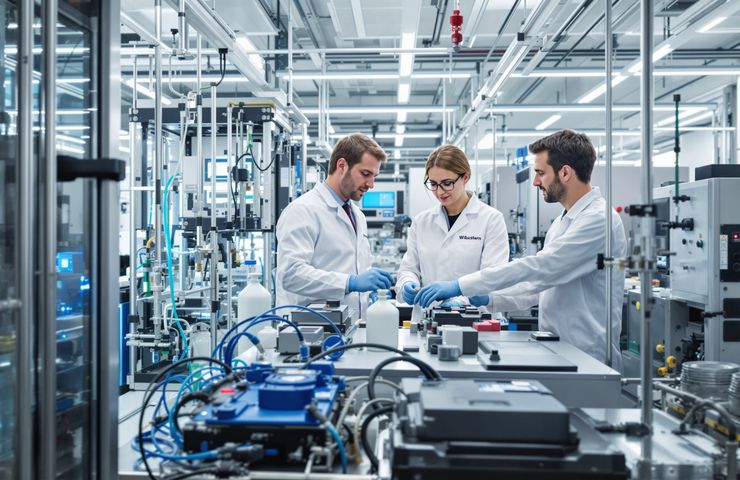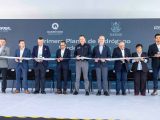
Hydrogen Production Pioneers: TU Braunschweig and Western University Launch Transatlantic Battery & Hydrogen Tech Alliance
October 24, 2025The global push for sustainable energy just got a big jolt. On October 17, 2025, Technische Universität Braunschweig (TU Braunschweig) and Canada’s Western University signed a cooperation deal to step up joint work on hydrogen production, fuel cell technology, and next-gen battery systems. Backed by a €4.3 million public boost at the Lower Saxony Research Centre for Vehicle Technology (NFF) and solid ties with Fraunhofer IST and Wasserstoff Campus Salzgitter, this transatlantic team aims to speed up the energy transition and train tomorrow’s experts.
Expanding a Transatlantic Research Network
TU Braunschweig and Western University have already teamed up on particle tech and biotech. This new deal cements their work on hydrogen and batteries. Highlights include:
- A student exchange and joint degrees in battery technologies and hydrogen kicking off in 2026.
- Shared access to TU Braunschweig’s Battery LabFactory and Western’s energy labs.
- Coordinated PhD supervision and faculty exchanges to keep ideas flowing.
- Partnerships with Fraunhofer IST and Wasserstoff Campus Salzgitter for advanced hydrogen research.
Deep Dive: Hydrogen Production and Fuel Cell Technology
At NFF’s new hydrogen hub, teams will tackle the full value chain:
- Electrolysis: optimizing membranes and catalysts to slash green hydrogen costs.
- Compression & Storage: designing high-pressure vessels and cryogenic units for safe storage.
- Distribution Infrastructure: prototyping modular refueling stations and pipeline networks.
- Fuel Cell Systems: advancing PEM and solid oxide stacks for transport, grid support, and backups.
Fraunhofer IST experts will apply surface engineering to boost catalyst life, as NFF’s vehicle labs slot fuel cells into real-world rigs.
Battery LabFactory and Next-Gen Storage
Meanwhile, the Battery LabFactory Braunschweig (BLB) offers an end-to-end testbed, from materials to cell assembly to recycling:
- Optimizing lithium-ion and new chemistries for more energy density and faster charging.
- Mapping cell degradation under real-world charge/discharge cycles.
- Scaling up pilot lines for automated production and safety testing.
Western University brings grid-scale storage modeling and testing protocols to make sure these battery technologies meet automotive and stationary needs.
Strategic Implications for Sustainable Energy
This is no mere lab project—it’s a strategic move to put Europe and North America ahead in zero-emission tech. By pooling funds and talent, the partnership can:
- Speed up innovation pipelines, slashing time-to-market for game-changing solutions.
- Train engineers and scientists skilled in both hydrogen production and battery technologies.
- Revive Lower Saxony’s auto sector and boost Ontario’s clean-tech hubs.
- Strengthen supply-chain resilience, especially for critical minerals.
Tackling EU-Canada regulatory alignment and securing sustainable mineral sources will be the real test of this alliance’s agility.
Looking Ahead
The first student exchanges start in early 2026, with new bachelor’s and master’s programs rolling out at TU Braunschweig. This partnership is already setting the pace for global research in the energy transition. We’ll keep an eye on NFF’s hydrogen prototypes and BLB’s battery breakthroughs in real-world trials.
Ultimately, these transatlantic pioneers might be the secret sauce for hitting climate goals, decarbonizing transport, and shaping robust hydrogen infrastructure worldwide.



 With over 15 years of reporting hydrogen news, we are your premier source for the latest updates and insights in hydrogen and renewable energy.
With over 15 years of reporting hydrogen news, we are your premier source for the latest updates and insights in hydrogen and renewable energy.